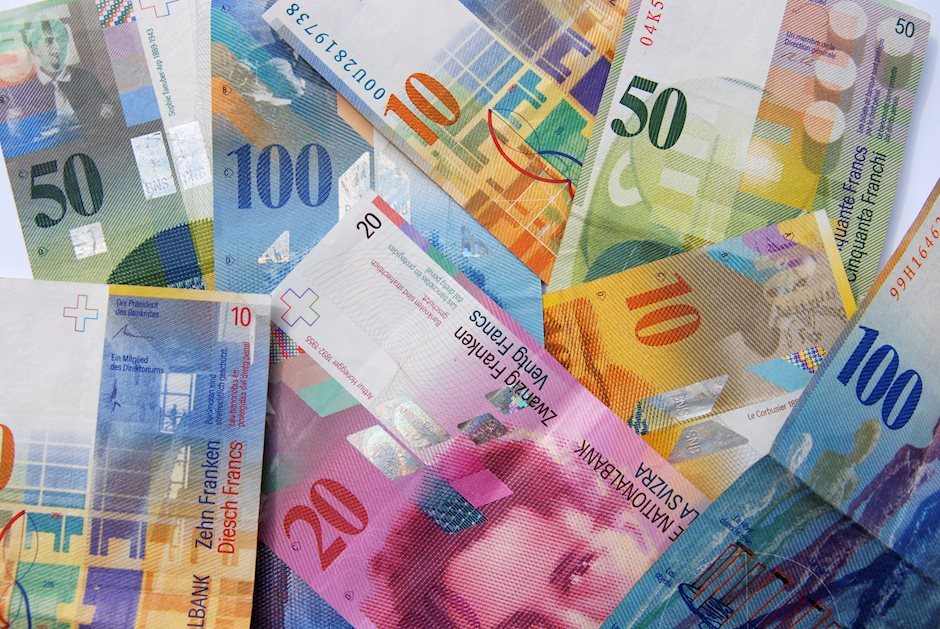USD/CHF clings to gains above 0.8650 as Fed seems to cut interest rates gradually
- USD/CHF grips gains near 0.8670 as traders priced out Fed large rate cut bets.
- A slew of upbeat US data has pointed to US economic resilience.
- The SNB is expected to extend its policy-easing cycle further.

The USD/CHF pair holds onto gains near an eight-week high of 0.8670 in Friday’s London session. The Swiss Franc pair remains firm as traders have priced out expectations for the Federal Reserve (Fed) to cut interest rates by a larger-than-usual size of 50 basis points (bps) again in the November meeting.
Traders expect the Fed to go slow on rate cuts as a slew of United States (US) economic data has pointed to economic resilience. After surprisingly upbeat Nonfarm Payrolls (NFP) and the ISM Services PMI for September, monthly Retail Sales data for the same period has come in better than expected. Thursday’s Retail Sales data rose at a faster-than-expected pace of 0.4%.
According to the CME FedWatch tool, there is a strong probability for the Fed to reduce interest rates by 50 bps in the remaining year. Also, the Fed is expected to cut its borrowing rates by 25 bps in each of the two meetings in November and December, which remained this year.
On the political front, market speculation for the US presidential elections that are scheduled on November 5 will influence the US Dollar. According to FiveThirtyEight’s daily election poll tracker, Democratic Kamala Harris is leading polls and has a 2.4-percentage-point lead over former President Donald Trump.
In the Swiss region, easing price pressures has boosted expectations of more interest rate cuts by the Swiss National Bank (SNB). Swiss annual Consumer Price Index (CPI) decelerated to 0.8% in September, the lowest in more than three years, despite the SNB reducing its key borrowing rates in each of the three meetings that took place this year.
Swiss Franc FAQs
The Swiss Franc (CHF) is Switzerland’s official currency. It is among the top ten most traded currencies globally, reaching volumes that well exceed the size of the Swiss economy. Its value is determined by the broad market sentiment, the country’s economic health or action taken by the Swiss National Bank (SNB), among other factors. Between 2011 and 2015, the Swiss Franc was pegged to the Euro (EUR). The peg was abruptly removed, resulting in a more than 20% increase in the Franc’s value, causing a turmoil in markets. Even though the peg isn’t in force anymore, CHF fortunes tend to be highly correlated with the Euro ones due to the high dependency of the Swiss economy on the neighboring Eurozone.
The Swiss Franc (CHF) is considered a safe-haven asset, or a currency that investors tend to buy in times of market stress. This is due to the perceived status of Switzerland in the world: a stable economy, a strong export sector, big central bank reserves or a longstanding political stance towards neutrality in global conflicts make the country’s currency a good choice for investors fleeing from risks. Turbulent times are likely to strengthen CHF value against other currencies that are seen as more risky to invest in.
The Swiss National Bank (SNB) meets four times a year – once every quarter, less than other major central banks – to decide on monetary policy. The bank aims for an annual inflation rate of less than 2%. When inflation is above target or forecasted to be above target in the foreseeable future, the bank will attempt to tame price growth by raising its policy rate. Higher interest rates are generally positive for the Swiss Franc (CHF) as they lead to higher yields, making the country a more attractive place for investors. On the contrary, lower interest rates tend to weaken CHF.
Macroeconomic data releases in Switzerland are key to assessing the state of the economy and can impact the Swiss Franc’s (CHF) valuation. The Swiss economy is broadly stable, but any sudden change in economic growth, inflation, current account or the central bank’s currency reserves have the potential to trigger moves in CHF. Generally, high economic growth, low unemployment and high confidence are good for CHF. Conversely, if economic data points to weakening momentum, CHF is likely to depreciate.
As a small and open economy, Switzerland is heavily dependent on the health of the neighboring Eurozone economies. The broader European Union is Switzerland’s main economic partner and a key political ally, so macroeconomic and monetary policy stability in the Eurozone is essential for Switzerland and, thus, for the Swiss Franc (CHF). With such dependency, some models suggest that the correlation between the fortunes of the Euro (EUR) and the CHF is more than 90%, or close to perfect.
Author

Sagar Dua
FXStreet
Sagar Dua is associated with the financial markets from his college days. Along with pursuing post-graduation in Commerce in 2014, he started his markets training with chart analysis.

















